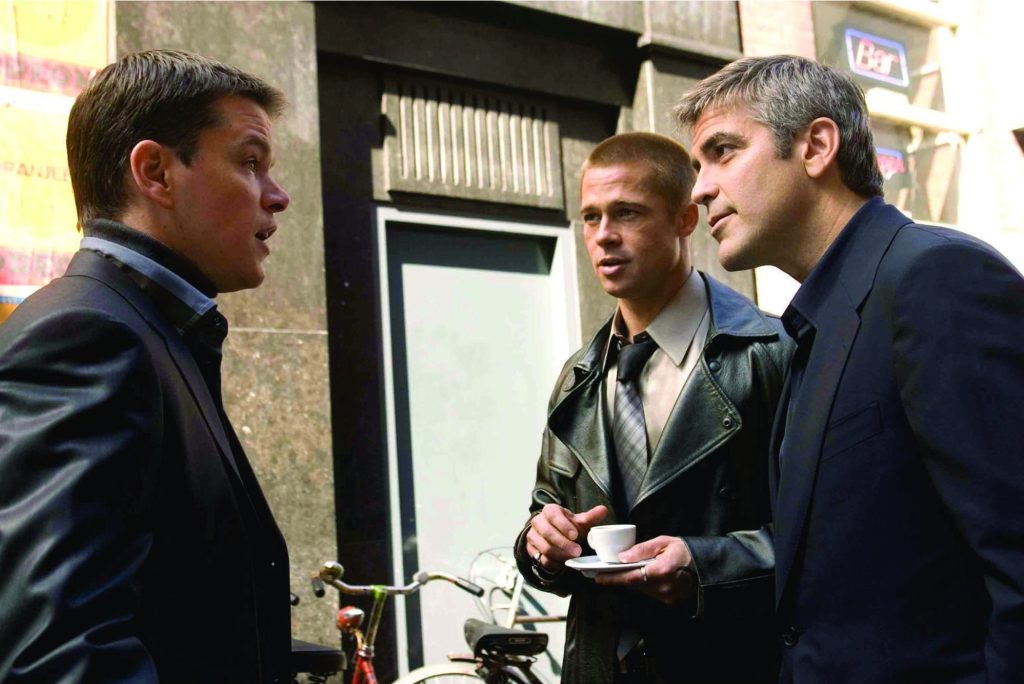“Punk was about redefining the rules and breaking the rules,” director Susan Seidelman told Dazed magazine in 2018. As an NYU student in the 1970s, Seidelman had a front-row seat for the DIY punk revolution that was unfolding at CBGB and the Mudd Club. Her peers and classmates, like Lizzie Borden and Beth B, were making films inspired by the abrasive and at times dystopian aesthetic of the punk scene, using nonlinear editing and confrontational depictions of sex and violence to tell character-driven stories about complicated women.
Seidelman shared her contemporaries’ interest in centering female characters who weren’t afraid to be unlikable. Where their movies were more formally experimental, however, she applied her interest in romantic comedies from the Golden Age of Hollywood to a series of features set on the Lower East Side. By making movies about difficult women that were steeped in both slapstick comedy and punk attitude, Seidelman brought the Lower East Side to the multiplex and made punk and new wave both cooler and more accessible to suburban teenage girls.
Smithereens, Seidelman’s debut feature, is her least conventional and most consistent with the work of her peers. The episodic film focuses on Wren (Susan Berman), a fashionable, entitled young woman who aspires to be…something. We follow Wren as she wanders through the East Village, wheatpasting photos of herself in the subways and cajoling bands at the Peppermint Lounge into letting her manage them in between hustling her friends for a place to stay and hitting her sister up for money. While the closing freeze-frame of Wren walking in the breakdown lane of the West Side Highway might strike fear in the viewer’s heart, it also makes sense after the previous 85 minutes. There was no other place Wren could go.
In Seidelman’s and Berman’s depiction of the character, she skates past admiring descriptions like “complicated” and “antiheroic” and ends up squarely on “unlikable,” and neither filmmaker nor actress do much to mitigate Wren’s intrinsic unlikability. Wren doesn’t really have a moment of vulnerability or an explanation of why she tries to manipulate everyone in her life, and the scenes where Seidelman could have made Wren seem a bit more sympathetic only inspire sympathy for the people around her. Around the midpoint, she visits her sister in the outer boroughs to hit her up for rent money. Wren’s casual rudeness towards her niece and the rudeness with which she refuses her sister’s offer of lunch might make viewers side with her sister and brother-in-law.
There’s a compelling tension between Wren’s off-putting personality and the way Berman portrays her. In the earliest scenes, Berman struts through the East Village in the kind of thrift-store finery that could launch a thousand mood boards, and in a later moment where she’s stalking up-and-coming guitarist Eric (played by punk legend Richard Hell), she plays Wren with the broad strokes and big body language of a fan-favorite character on a sitcom. At times she delivers her dialogue with the rhythm of a stand-up comedian, and her ability to find the punchlines in Wren’s monologues takes some of the edge off the character.
Smithereens became the first American independent feature accepted into Cannes, where it was invited to compete in the Palme d’Or. In an interview with Indiewire, Seidelman described the film’s premiere as “so unexpected,” adding that she and Berman “were both like Alice in Wonderland…two of us who made this funky little movie show up, and there we are walking up the red carpet of the Palais. It was all slightly surreal.”

This sense of surreality informed Desperately Seeking Susan, which Seidelman was hired to direct on the strength of Smithereens. Desperately splits its time between two protagonists: Roberta (Rosanna Arquette), a lonely New Jersey housewife who longingly reads the personals in a New York City tabloid, and Susan (Madonna), an enigmatic drifter and petty crook who communicates with her paramour through personal ads in a New York City tabloid. After reading about Susan’s latest rendezvous, Roberta takes an impromptu trip to Battery Park, only to become enmeshed in the gritty underworld that Susan inhabits.
Though Desperately Seeking Susan was originally written by Leora Barish, its downtown New York setting and low-level criminal protagonist seem like carryovers from Smithereens. While Wren could be a hard character to like, Madonna brings a sly sense of mystery to her portrayal of Susan. She has the kind of spirited-yet-smoldering screen presence that could appeal to even the most hardened viewer, and her crack comic timing makes the kludgiest dialogue sound natural, as in a scene where she reads aloud from Roberta’s diary.
While Seidelman is most at home in Susan’s downtown milieu, she’s able to balance Susan’s cool hedonism with Roberta’s longing for adventure. In the first act, she frequently dresses Arquette in oversized pastel schmattes and shoots her in high-angle wide shots, giving her the appearance of a sad child or a rag doll. The greige shoebox-shaped rooms and stucco homes of Roberta’s suburban New Jersey enclave contrast sharply with the neon-lit nightclubs and thrift stores Susan inhabits; even though Seidelman gives Susan and Roberta high stakes, watching Roberta grow into the vintage wardrobe she steals from Susan’s Port Authority locker emphasizes that the risks allowed Roberta to develop a stronger sense of identity.
Desperately Seeking Susan was the 13th highest grossing movie of 1985, thanks in no small part to Madonna’s passionate fanbase. After moving out of the city to direct two features that would find an audience on cable and home video, Seidelman returned to New York to make Cookie at the close of the decade.
A father/daughter comedy set in the New York mafia, with a script by Nora Ephron and a cast led by Peter Falk, could have been a hidden treasure in the director’s filmography. Our POV character is Cookie Voltecki (Emily Lloyd), a high-school dropout who gets arrested jumping turnstiles. An unknown lawyer keeps Cookie from being sentenced to any punishment, and the incident stays off her record as long as she keeps her father (Falk) out of jail. He hires her to work as his chauffeur, only for her to get more involved in his mob dealings.
A short description of Cookie makes it sound like the kind of snappy, delicious movie Seidelman made at the start of her career. As appealing as a Nora Ephron/Susan Seidelman collaboration may sound on paper, however, the script is too plot-driven, and we don’t get enough of a sense of the characters. The third act twist feels dark and a little mean in a way that’s atypical of Seidelman’s films. The blithe acceptance of Cookie growing from an apathetic teenager to a mafia princess in training comes off like a plot contrivance, and you wish someone in the production had treated it with a darker sense of humor.
Part of the problem stems from Emily Lloyd’s performance in the title role. At the time, Lloyd was seen as an up-and-coming talent on the strength of her performance in the British coming-of-age movie Wish You Were Here, but was still unproven in American movies. In light of the health problems that halted her career, writing honestly about her faltering performance feels like kicking a puppy. To her credit, Lloyd had a physicality that lent itself well to Seidelman’s fondness for slapstick, as in the turnstile-jumping scene that opens the film, and her sense of interiority gave the film some ethereal moments. Unfortunately, her Noo Yawk accent frequently sounds like she was trying to think through how to pronounce different words instead of what the words meant and why she was saying them, and her occasional lapses into her natural British accent sound weird.
While Seidelman has yet to match the success of Desperately Seeking Susan, she’s made a series of features that are at least worth watching through the end. Her work has evolved from the punk era to contemporary indie film, and it’s hard to imagine some of our more adventurous female directors without the precedent she said. With the publication of Seidelman’s memoir, Desperately Seeking Something, perhaps the next generation of women with cameras will find a way to tell the stories of the complicated women in their own demimondes.



